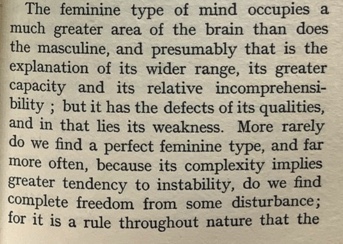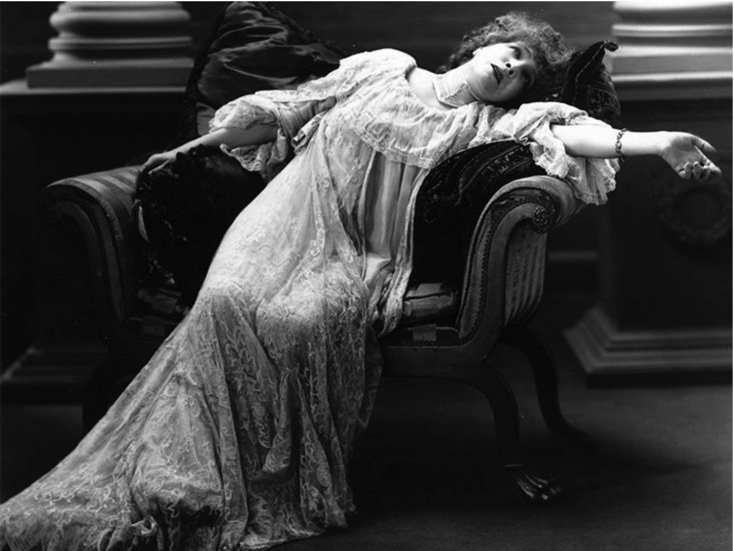Don’t be a Pussy: The Feminine Mind as an Ailment
At the core of the belief that the female mind was the cause of hysteria was the belief that the female mind was vastly different from the male mind. In Minds of Distress, it argued that the “feminine” mind was more complex than the “masculine”, but as a result, possessed a greater tendency towards instability. Similarly, “A Thesis on Hysteria," by Otis Ayer, New Hampshire, 1841, characterized hysteria as “a trifling affair made up of nervousness, fancifulness, and imbecility.” It is clear that there was a general agreement at the time generally agreed that the female mind has a fundamental instability, and that the malady hysteria was simply a manifestation of the gender’s inherent imperfection. This medicalthesis also referred to women as the “gentler sex”, implying that women lacked the “masculine” mental toughness needed to combat negative emotions. Relatedly, many physicians at the time asserted that any person could contract hysteria, but only the mentally weak actually succumbed to the illness. The author of the medical thesis referenced earlier echoed this sentiment, writing that although the vast majority of hysteria patients were women, men - particularly those deemed to be weak minded - could contract the disease as well. The hysteria diagnosis was of course an attack on women, but more than anything, it was an attack on the qualities attributed to the feminine mind.
The Household Physician presents a paradoxical characterization of the disease by naming the female mind as well, while also detailing physiological causes of the disease. This layperson’s medical guide stated that hysteria was caused by abnormalities of the vagina, and that t psychological effects stemmed from the connection between the vagina and those parts of the nervous system devoted to sexuality. Despite this argument for a physiological basis for the disease, the ‘weak’ feminine mind was still highlighted as a means to remedy this physical ailment; curing this illness disease depended solely on the the woman’s own willpower, since hysteria could only be overcome by consciously correcting the mind, not by treating the body.
Interestingly, the body is depicted to be the cause of the disease, but the feminine mind is, in a sense, blamed for the lack of betterment of the disease as it is illustrated as the barrier between disease and well-being: it goes to follow that if the mental strength of the patient is the cure for the disease, then the mental weakness of the patient is to blame if the patient does not get better. This, again, frames the feminine mind as an ailment due to its ‘gentle’ and ‘unstable’ nature. In summation, the message from doctors to hysteria patients was clear: don’t be a pussy.




